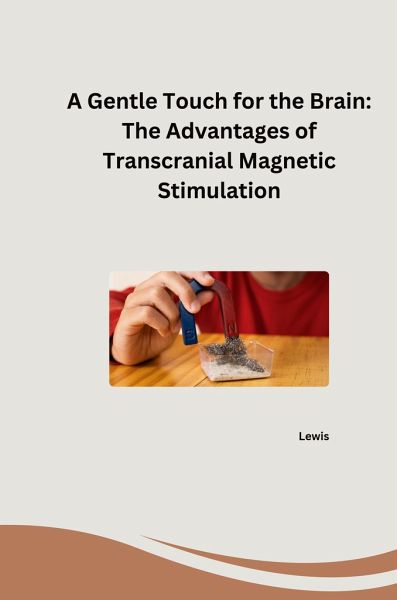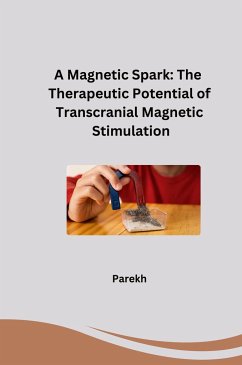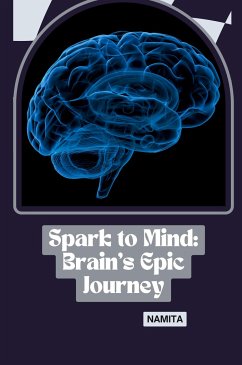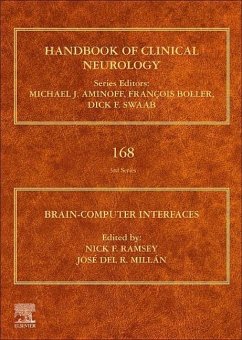
A Gentle Touch for the Brain: The Advantages of Transcranial Magnetic Stimulation
Versandkostenfrei!
Versandfertig in 6-10 Tagen
28,58 €
inkl. MwSt.

PAYBACK Punkte
0 °P sammeln!
The human brain, a complex and powerful organ, often grapples with disorders that can significantly impact our lives. "A Gentle Touch for the Brain: The Advantages of Transcranial Magnetic Stimulation" explores a revolutionary technique, TMS, offering a non-invasive and promising approach to brain stimulation for various neurological and psychiatric conditions.Imagine a treatment that bypasses surgery and medication, stimulating the brain directly. TMS utilizes magnetic pulses delivered through coils placed on the scalp. These painless pulses gently stimulate targeted brain regions, offering a...
The human brain, a complex and powerful organ, often grapples with disorders that can significantly impact our lives. "A Gentle Touch for the Brain: The Advantages of Transcranial Magnetic Stimulation" explores a revolutionary technique, TMS, offering a non-invasive and promising approach to brain stimulation for various neurological and psychiatric conditions.Imagine a treatment that bypasses surgery and medication, stimulating the brain directly. TMS utilizes magnetic pulses delivered through coils placed on the scalp. These painless pulses gently stimulate targeted brain regions, offering a new avenue for treatment.The advantages of TMS make it a compelling option for many:Non-Invasive and Painless: Unlike traditional brain surgery or deep brain stimulation, TMS avoids invasive procedures, offering a comfortable and safe experience.Reduced Side Effects: Compared to medications, TMS often has fewer and milder side effects, making it a well-tolerated treatment option for many patients.Targeted Therapy: TMS allows for precise stimulation of specific brain regions associated with various disorders, offering a more focused approach than traditional medications.The potential applications of TMS are vast:Treating Depression: For patients with major depressive disorder who haven't responded well to medication, TMS offers a ray of hope, providing relief and improving their quality of life.Beyond Depression: Research is exploring the use of TMS for treating other conditions like anxiety, obsessive-compulsive disorder, and even chronic pain, offering a broader scope of intervention.Unlocking Potential: TMS may have the potential to enhance cognitive functions like memory, attention, and motor control, offering benefits for individuals with learning disabilities or neurological impairments.While TMS holds immense promise, some challenges remain:Individualized Treatment: The effectiveness of TMS can vary significantly between individuals, necessitating personalizedtreatment plans.Long-Term Studies: While initial results are encouraging, more long-term research is needed to assess the lasting effects of TMS for different conditions.Accessibility and Cost: As a relatively new technology, TMS may not be widely available or covered by all insurance plans, limiting access for some.Despite these considerations, TMS represents a significant advancement in brain stimulation. With continued research and refinement, this gentle touch has the potential to revolutionize the treatment of various neurological and psychiatric disorders, offering a new path towards healing and hope.














